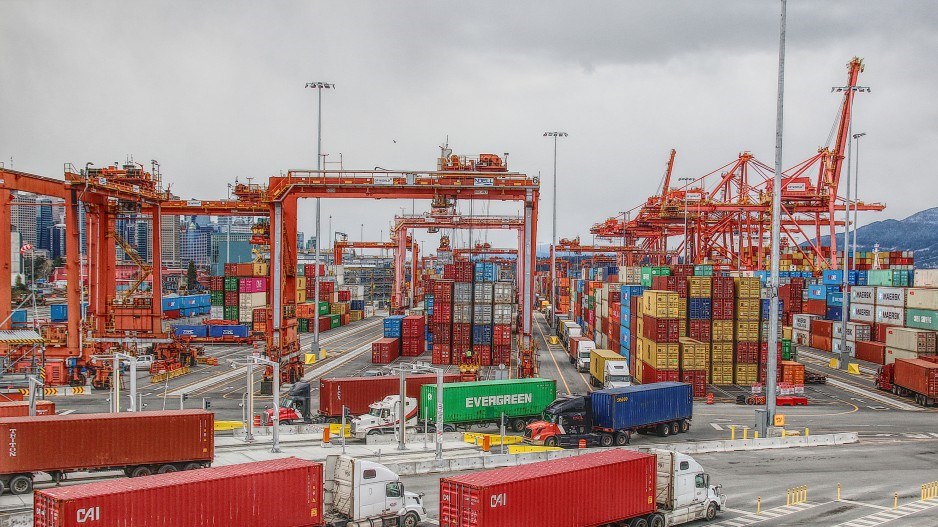The union representing 7,400 port and terminal workers in B.C. has issued 72-hour strike notice after talks with the bargaining committee for the BC Maritime Employers Association (BCMEA) hit an impasse yesterday.
The move comes a day after the BCMEA issued an update saying that bargaining committees for both the employers and International Longshore and Warehouse Union Canada (ILWU) continued to meet last week and through the weekend and were anticipated to continue bargaining next week with the help of Federal Mediation and Conciliation Service (FMCS) officials.
Both sides have been in negotiations since February. ILWU (Canada) has been without a contract since the end of March.
In a June 28 release, ILWU president Rob Ashton said the union is seeking a fair deal “that respects longshore workers [and] protects our jobs and our jurisdiction,” but the BCMEA bargaining committee continues to seek major concessions.
Key ILWU objectives in the current contract negotiations, he said, include stopping the erosion of union work through contracting out, protecting current and future jobs from the impacts of port automation and protecting dockworkers from high inflation and B.C.’s skyrocketing cost of living.
Ashton said in the release that the employer's only objective “is to take away rights and conditions from longshore workers after having gorged themselves on record profits during the pandemic.”
But the BCMEA stated in a written response that its bargaining committee “has advanced multiple proposals and positions in good faith, with the objective of making progress and achieving a fair deal at the table. Despite today’s regrettable development, we remain ready to re-engage with our labour partners through the federal mediation process, with the desire of reaching a fair and balanced deal at the table that keeps our ports stable and goods flowing for Canadians.”
The maritime employers’ association added that it continues to be open to any solution that “brings both parties to a balanced agreement. That includes voluntarily entering a mediation-arbitration process shaped by the parties that encourages continued dialogue and negotiations and only, if necessary, provides for a binding outcome via interest arbitration. So far, ILWU Canada has declined this binding mediation & arbitration proposal.”
In a joint statement, Federal Minister of Labour Seamus O’Regan and Minister of Transportation Omar Alghabra urged both parties to return to the bargaining table and “work together to reach an agreement. That is what matters most now. Everyone – the employer, the union, the mediators and the government – understands the urgency and what is at stake for Canadians and our supply chains.”
According to the statement, Federal Mediation and Conciliation Service (FMCS) mediators are meeting with both parties and “will keep supporting negotiations until an agreement is reached.”
Pressure to reach an agreement on a new collective agreement in B.C. increased after the Pacific Maritime Association and the 22,000 unionized dockworkers employed at 29 ports along the U.S. West Coast arrived at a tentative agreement for a new six-year deal earlier this month. The two sides had been without a contract since July 2022.
Other factors applying pressure to negotiate a new deal between the two sides along B.C.’s waterfront include a slowing economy that is reducing overall shipping demand on the transpacific and other major trade routes and the continued migration of container cargo away from West Coast North American ports to competing ports in Mexico and along the Gulf and Eastern Seaboard.
In its June 27 update, the BCMEA acknowledged that “stability at our West Coast ports is paramount to Canada’s economic and social well-being.”
The BCMEA added that it “remains committed to good faith negotiations with the intent of reaching a fair and equitable deal at the bargaining table that recognizes the efforts of the workforce, while keeping our ports stable and goods flowing for Canadians.”
The BCMEA said a potential strike will not affect port employees required to service grain ships. It added that it also intends to ensure that cruise ships will continue to be serviced.
Both parties in the contract negotiations are scheduled to continue bargaining with FMCS assistance tomorrow (July 29).
Having issued 72-hour strike notice, B.C. dockworkers are set to walk off the job at 8 a.m. on July 1.
@timothyrenshaw




